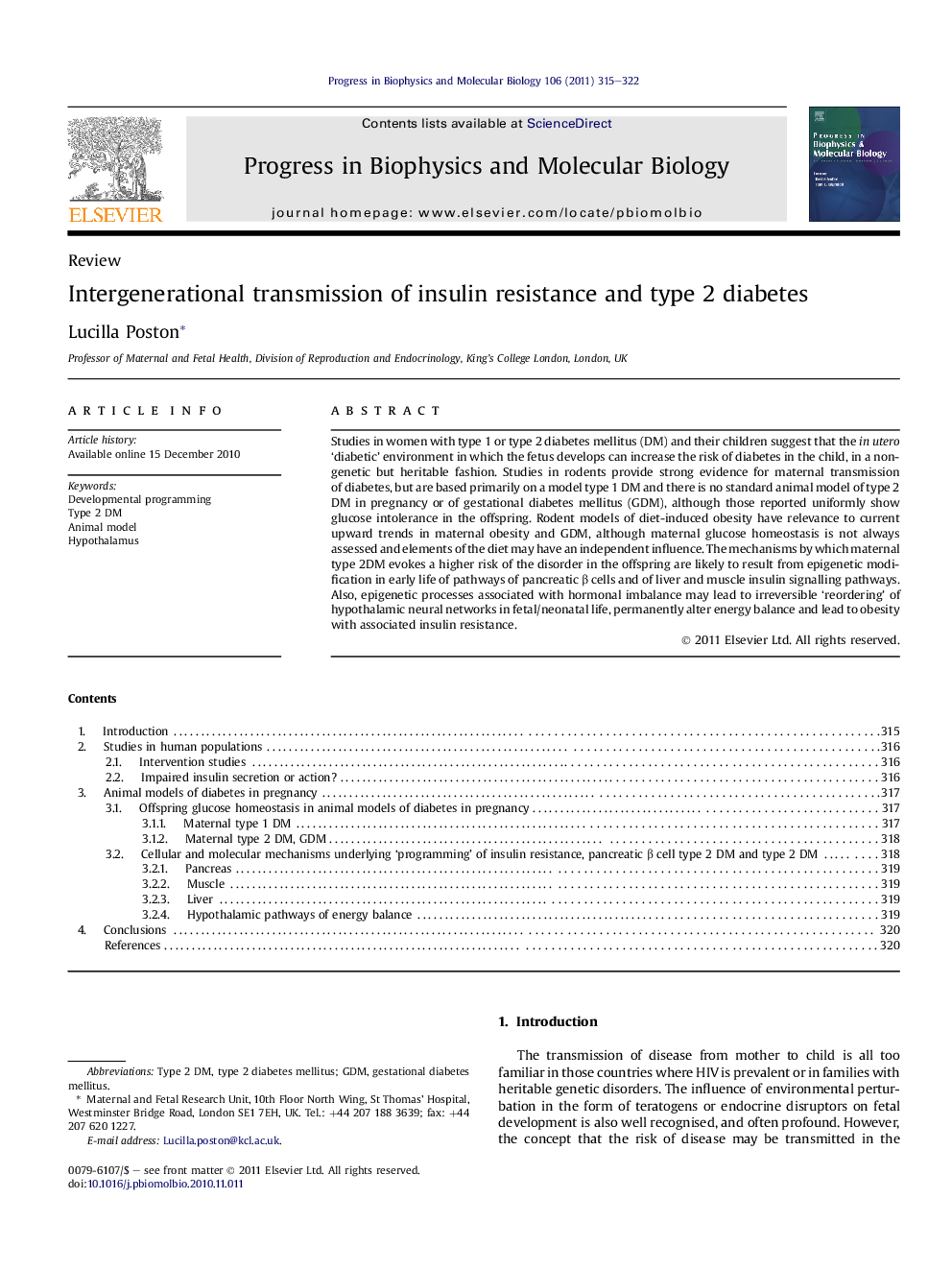| Article ID | Journal | Published Year | Pages | File Type |
|---|---|---|---|---|
| 2070571 | Progress in Biophysics and Molecular Biology | 2011 | 8 Pages |
Studies in women with type 1 or type 2 diabetes mellitus (DM) and their children suggest that the in utero ‘diabetic’ environment in which the fetus develops can increase the risk of diabetes in the child, in a non-genetic but heritable fashion. Studies in rodents provide strong evidence for maternal transmission of diabetes, but are based primarily on a model type 1 DM and there is no standard animal model of type 2 DM in pregnancy or of gestational diabetes mellitus (GDM), although those reported uniformly show glucose intolerance in the offspring. Rodent models of diet-induced obesity have relevance to current upward trends in maternal obesity and GDM, although maternal glucose homeostasis is not always assessed and elements of the diet may have an independent influence. The mechanisms by which maternal type 2DM evokes a higher risk of the disorder in the offspring are likely to result from epigenetic modification in early life of pathways of pancreatic β cells and of liver and muscle insulin signalling pathways. Also, epigenetic processes associated with hormonal imbalance may lead to irreversible ‘reordering’ of hypothalamic neural networks in fetal/neonatal life, permanently alter energy balance and lead to obesity with associated insulin resistance.
